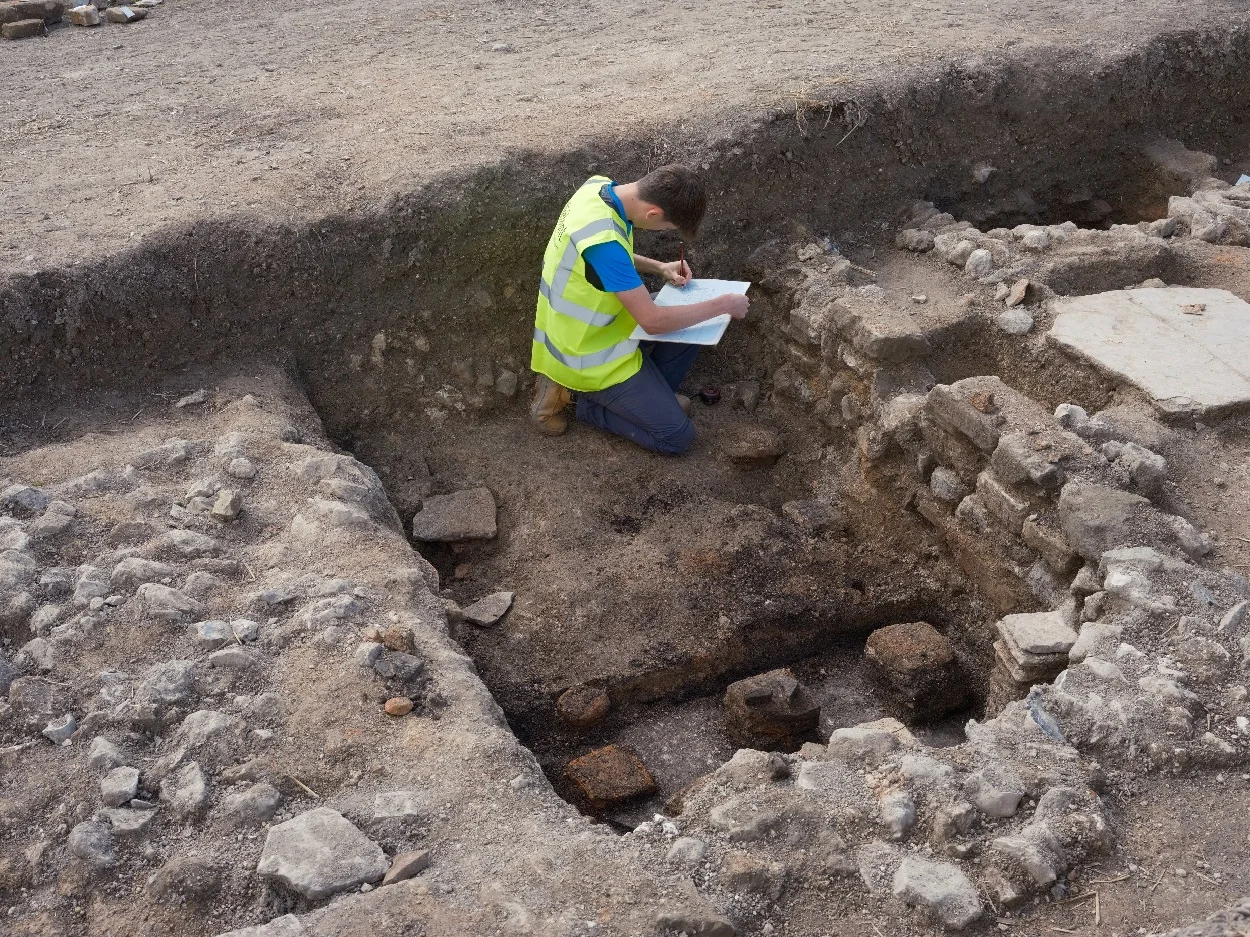Archaeologists have discovered a high status Roman villa in the Chalke Valley, located in Wiltshire, England.
The site was initially identified by detectorists, who reported finding Roman artefacts to the Portable Antiquities Scheme at Salisbury Museum.
This led to excavations over a two-week period which are part of a community project managed by Teffont Archaeology and supported by Cardiff University.
According to a recent press statement, the project uncovered a villa complex over 35 metres in length, serving as the centre of a large agricultural estate during the late Roman period.
Alongside the main structure, the archaeologists found a bathhouse, a multi-story barn, and a concrete-floored building that might have served as an outdoor pool.
Dr David Roberts of Cardiff University, who co-directed the project, said, “We’re delighted to have discovered the first-known Roman villa in this part of south Wiltshire while working with our local volunteers.”
“The site was likely the centre of a significant estate in the later Roman period, and its owners must have extracted a great deal of labour and surplus from the local farming communities to fund their luxury lifestyle,” added Dr Roberts.
Within the main villa building, excavations also revealed high status furnishings, such as high-quality mosaics with intricate geometric designs, and painted wall plaster and columns.
According to the archaeologists, these finds highlight the wealth and influence of the villa’s inhabitant, in an area thought to be scarce of major Roman development. The archaeological team will now work on analysing the finds from the site, and next year will give a range of talks locally about the results.
Header Image Credit : Telfon Archaeology
Sources : Cardiff University





